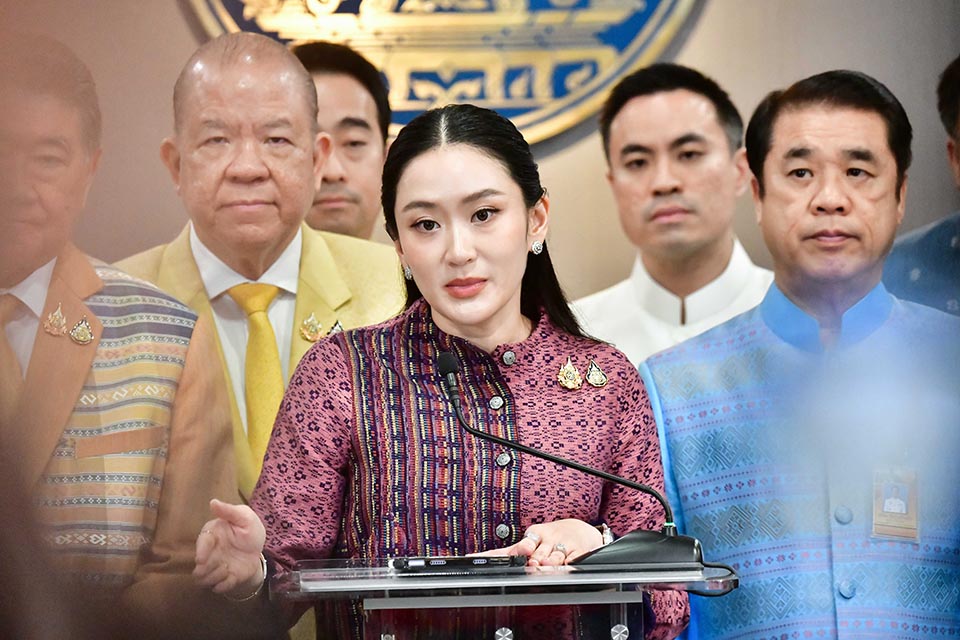
BANGKOK, Thailand – Prime Minister Paetongtarn Shinawatra announced on May 20 that the Cabinet has approved a resolution to reallocate the 157 billion baht originally planned for Phase 3 of the digital wallet program. Instead, the funds will now be redirected toward four major economic stimulus projects: water infrastructure, transportation, tourism, and exports. The prime minister explained that this change is not because the digital wallet policy has failed, but rather because of unexpected external factors, particularly the rising global economic pressure caused by the so-called “Trump tax” or U.S. trade tariffs, which have disrupted economic strategies worldwide.
After discussions with the Bank of Thailand and the National Economic and Social Development Council, the government concluded that it would be more appropriate to spend the available budget on reinforcing the country’s long-term economic foundations rather than providing short-term cash handouts. Paetongtarn noted that the previously implemented Phases 1 and 2 of the digital wallet program successfully helped vulnerable groups and the elderly. However, Phase 3, which was intended to cover the general population, will be postponed to allow for a more pressing investment in national infrastructure.
She emphasized that the 157 billion baht must be spent by September 30, in accordance with fiscal year constraints. Therefore, swift and strategic allocation is necessary. This reallocation is not a direct response to the U.S. trade tariffs, but it is being done in parallel with the government’s broader economic defense strategy. The administration is also preparing a separate response to the global situation, including the impact of U.S. tariffs, possibly involving a 500-billion-baht loan aimed at shielding Thailand from external shocks.
Paetongtarn acknowledged that some people who expected to receive the 10,000 baht benefit might feel disappointed, especially those who were counting on it. She asked Members of Parliament to clearly explain to their constituents that the decision was based on what is currently most beneficial to the nation as a whole. She reiterated that the digital wallet initiative has not been scrapped permanently. If economic conditions allow, the government is still committed to implementing the policy in the future.
In closing, she affirmed the government’s readiness to take short-, medium-, and long-term measures to address the changing global economic environment and urged unity and understanding from all sectors as Thailand navigates these challenges.










